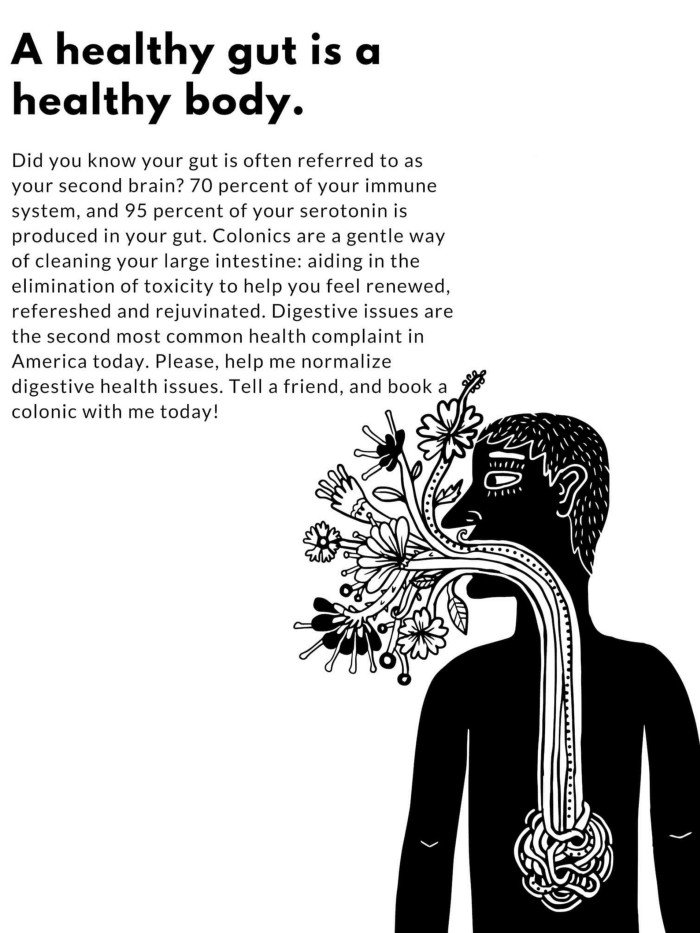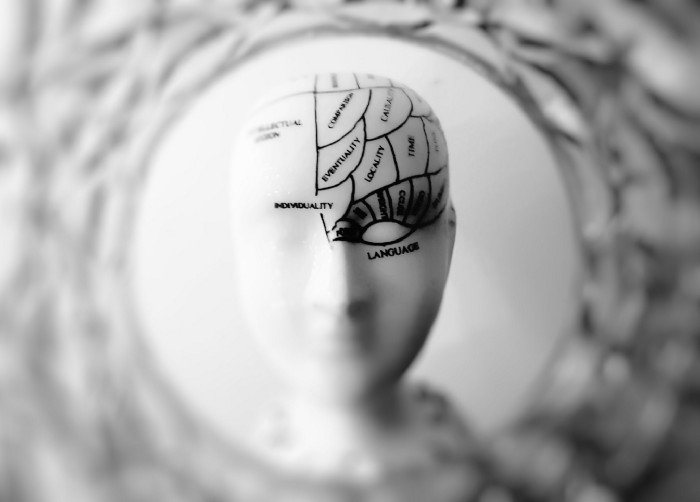Your Gut is Your Second Brain
Mental Health Can be Healed Through the Gut
Written by Brandi McMurry
It is that gnawing feeling in your gut. Butterflies in your stomach. The taste of dread free flowing. That’s right, your gut is talking to you. It’s your second brain. “Gut instinct” is alive and well.
The vagus nerve is the brain, gut connection. This nerve stretches throughout the upper body from the brain, through the esophagus, to the gut, and circles back around in a loop. Your digestive health directly effects your mental health, just as your mental health can stir your digestion.
“80 percent of the vagus nerve fibers communicate from the body to the brain. 20 percent communicate from the brain to the body.” According to Brain Chat, “What is interesting about serotonin is that about 95% of serotonin is located in the enterochromaffin cells of the gut. So if there is inflammation in the gut, there can be altered levels of serotonin located in the periphery.”
Inflammation is the root cause of disease, and effects nearly every aspect of health, including physical and mental. Anti inflammatory foods can help reduce inflammation including; leafy greens, fish, nuts, and berries.
Serotonin is produced in the gut, and travels along the superhighway of information to the brain, not vice versa.
Mood swings, anxiety, and depression can be a reflection of your gut health. Simple changes in lifestyle and diet can go a long way to enhance mental health. Always speak with your doctor before making any drastic changes.
The way our bodies respond to stress greatly effects digestion. The autonomic nervous system consists of the parasympathetic, and sympathetic nervous system. Our response to life events can trigger a fight or flight response. Evolved from our ancestors, this stress response is a survival technique to keep us alive in dangerous situations. Imagine a bear has invaded your living space. This stress will trigger a gut reaction from your autonomic nervous system, in either fight (kill the bear)or flight (run). Today we are most likely not facing the dangers of bears invading our homes, but our bodies can have the same reaction to everyday stress. Work, bills, kids, even traffic can alert the nervous system response. The sympathetic nervous system kicks in the fight response, ready to protect yourself from the bear, causing a fit of rage. The parasympathetic nervous system will slow you down, and can help calm the body as it is able to “rest and digest.”
Probiotics found naturally in fermented foods, or in supplement form, can help balance the good gut bacteria. Be sure to take prebiotics (fiber) along with probiotics.
Colonics can also help hydrate the colon and the gut. A build up of waste in the colon can ferment, enter the blood stream, and cause an awry of unwelcome symptoms, including brain fog. Once the brain fog is cleared, pay attention to your alertness. The brain fog can be a mask for your depression. Notice once you are alert, you feel more alive, more aware of what your body is consuming, and how you feel once it is consumed. Listen to your body. Obey your thirst. Hydration is key to regular and easy digestion. Water is our life source.
Exercise is another important factor that can help with both mood and digestion. Our bodies are not meant to be idol for long periods of time. A short walk, or subtle yoga twist can really help your digestion during transit. Imagine a wash cloth, and when you wring it out water pours from it. When your body twists, your gut is pouring out toxins, aiding with peristalsis, and moving the digestive process more easily.


